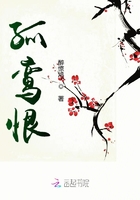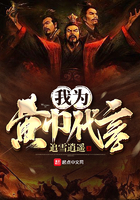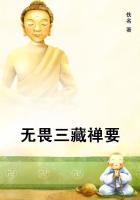His emancipated sons had no share in the inheritance. If he leftno direct descendants living at his death, the nearest grade ofthe Agnatic kindred succeeded, but no part of the inheritance wasgiven to any relative united (however closely) with the dead manthrough female descents. All the other branches of the familywere excluded, and the inheritance escheated to the Gentiles, orentire body of Roman citizens bearing the same name with thedeceased. So that on failing to execute an operative Testament, aRoman of the era under examination left his emancipated childrenabsolutely without provision, while, on the assumption that hedied childless, there was imminent risk that his possessionswould escape from the family altogether, and devolve on a numberof persons with whom he was merely connected by the sacerdotalfiction that assumed all members of the same gens to be descendedfrom a common ancestor. The prospect of such an issue is initself a nearly sufficient explanation of the popular sentiment;but, in point of fact, we shall only half understand it, if weforget that the state of things I have been describing is likelyto have existed at the very moment when Roman society was in thefirst stage of its transition from its primitive organisation indetached families. The empire of the father had indeed receivedone of the earliest blows directed at it through the recognitionof Emancipation as a legitimate usage, but the law, stillconsidering the Patria Potestas to be the root of familyconnection, persevered in looking on the emancipated children asstrangers to the rights of Kinship and aliens from the blood. Wecannot, however, for a moment suppose that the limitations of thefamily imposed by legal pedantry had their counterpart in thenatural affection of parents. Family attachments must still haveretained that nearly inconceivable sanctity and intensity whichbelonged to them under the Patriarchal system; and, so little arethey likely to have been extinguished by the act of emancipation,that the probabilities are altogether the other way. It may beunhesitatingly taken for granted that enfranchisement from thefather's power was a demonstration, rather than a severance, ofaffection -- a mark of grace and favour accorded to thebest-beloved and most esteemed of the children. If sons thushonoured above the rest were absolutely deprived of theirheritage by an Intestacy, the reluctance to incur it requires nofarther explanation. We might have assumed a priori that thepassion for Testacy was generated by some moral injusticeentailed by the rules of Intestate succession; and here we findthem at variance with the very instinct by which early societywas cemented together. It is possible to put all that has beenurged in a very succinct form. Every dominant sentiment of theprimitive Romans was entwined with the relations of the family.
But what was the Family? The Law defined it one way -- naturalaffection another. In the conflict between the two,the feeling wewould analyse grew up, taking the form of an enthusiasm for theinstitution by which the dictates of affection were permitted todetermine the fortunes of its objects.
I regard, therefore, the Roman horror of Intestacy as amonument of a very early conflict between ancient law and slowlychanging ancient sentiment on the subject of the Family. Somepassages in the Roman Statute-Law, and one statute in particularwhich limited the capacity for inheritance possessed by women,must have contributed to keep alive the feeling; and it is thegeneral belief that the system of creating Fidei-Commissa, orbequests in trust, was devised to evade the disabilities imposedby those statutes. But the feeling itself, in its remarkableintensity, seems to point back to some deeper antagonism betweenlaw and opinion; nor is it at all wonderful that the improvementsof jurisprudence by the Praetor should not have extinguished it.
Everybody conversant with the philosophy of opinion is aware thata sentiment by no means dies out, of necessity, with the passingaway of the circumstances which produced it. It may long survivethem; nay, it may afterwards attain to a pitch and climax ofintensity which it never attained during their actualcontinuance.














